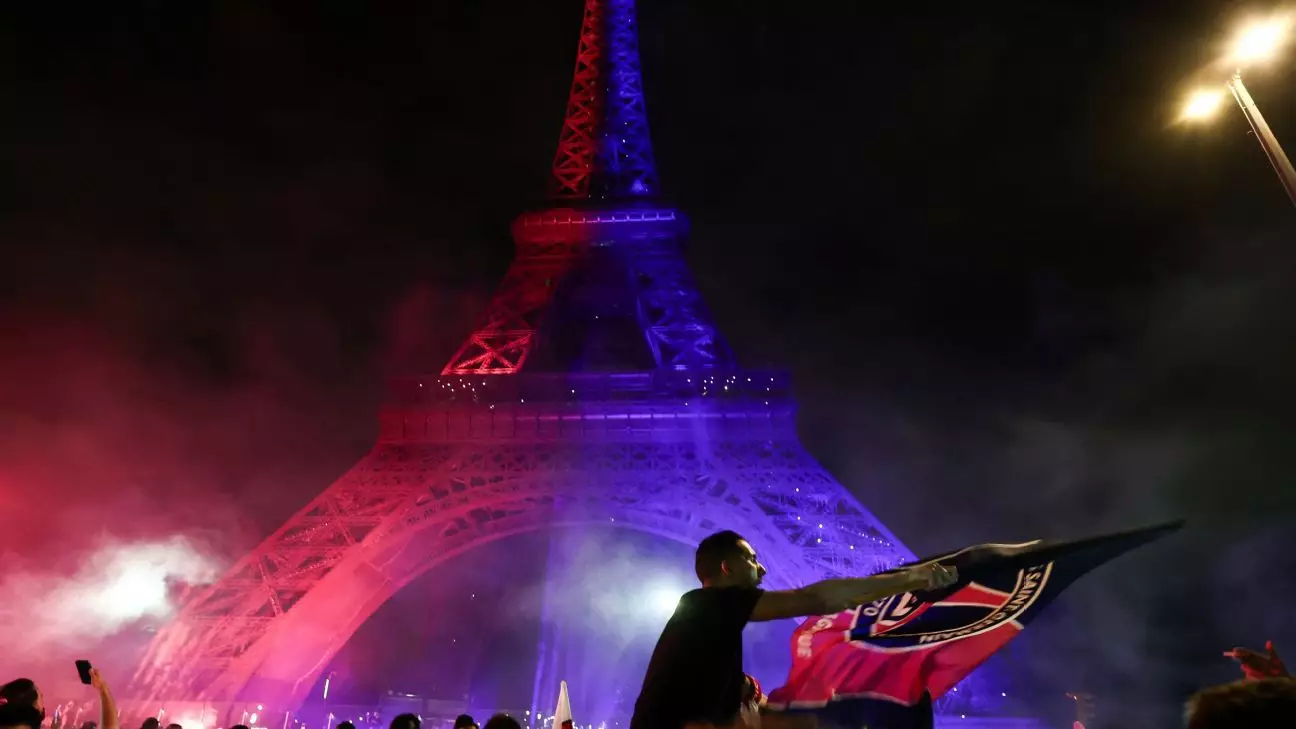The jubilant streets of Paris erupted in celebration following Paris Saint-Germain’s momentous victory in the UEFA Champions League—a triumph that many fans had awaited for decades. However, amidst the powerful roar of triumphant fans and the vibrant display of team colors illuminating the Eiffel Tower, the night was abruptly overshadowed by tragedy. Reports from French authorities revealed that two young fans lost their lives, and a police officer suffered life-threatening injuries, taking a significant toll on what should have been an unblemished night of joy.
It is evident that while sports celebrations can unite people in jubilant fervor, they can also spiral out of control, leading to chaos and grief. The case in Dax highlights a shocking reality; a 17-year-old was fatally stabbed during a street party that was intended to celebrate unity and pride. Such an act of violence starkly contrasts the ethos of community that sports are meant to symbolize. Meanwhile, in Paris, a young man lost his life due to a tragic accident involving a car and his scooter. These instances remind us that behind every joyous event, there exists the risk of tragedy lurking just beneath the surface.
An Atmosphere Turned Hostile
The mood in the capital, which started the night as overwhelmingly positive, slowly gave way to disruptions. It raises questions about crowd control and safety protocols during major celebrations. As hours passed, police reported a significant uptick in violence—a police officer was grievously injured due to an accidental firework incident, landing him in an artificial coma. The sheer magnitude of injuries and arrests, with a staggering 294 arrests made by 2 a.m., begs for introspection into policing strategies. While law enforcement efforts were directed at maintaining order, the backlash of heavy-handed tactics, including the use of tear gas and water cannons, indicates a troubling struggle to balance celebration and security.
The celebratory chaos became a focal point for discussions about societal behavior during high-stakes sporting events. Authorities indicated that many individuals seemed more intent on instigating violence than reveling in a shared victory. Such a discrepancy suggests a troubling trend; sporting triumphs are at times hijacked by those looking to exploit the emotional high, forcing civilians and authorities alike to navigate the consequences.
The Ripple Effects of Celebration Gone Wrong
In the aftermath of the celebrations, various human and societal costs emerged, revealing how negligence could taint collective joy. The injuries, the looting, and even the extensive deployment of police around the French Open showcase how elevated tensions can disrupt daily life. Countless townspeople became collateral damage in a battle between dedicated fans and those inclined toward chaos. The paradox of jubilant celebrations strifes with an undercurrent of anarchy, highlighting not just the capacity for joy in sports but also the fragility with which it can transform into calamity.
Moreover, the anticipation of a victory parade later that day underscores the complex interactions between sports culture and civil order. With an expected turnout of 110,000 fans flooding the Champs-Élysées, there arises a chilling question: as fans celebrate, how does one maintain the joyous atmosphere without courting disaster? The juxtaposition of light shows and celebratory toasts against the backdrop of a police line illustrates the dissonance in mood and reality faced by those in attendance.
Reflections on the Nature of Celebrations
This tragedy tarnishes what should be a historic occasion—a moment solidifying the relationship between a team and its supporters. It urges inevitable reflection on how celebrations are organized and how individuals respond to shared success. Authorities must take a long, hard look at the dynamics of collective events, addressing not just crowd control but also the societal mindset that leads many into chaos during celebrations.
While the thrill of sports can inspire community and connection, it can equally ignite ugliness. As we witness the deployment of resources and attention typically reserved for emergencies now focused on preparedness for celebratory events, the larger implications resonate. Communities are challenged to cultivate a culture of celebration that embraces joy while dismissing violence. Ultimately, PSG’s victory should be remembered for the on-field triumph and not the sorrowful aftermath that marred a night of hope.


Leave a Reply